For five years I lived and thought one way; now almost over night all that was changed. My husband had died, my baby was one year old, my daughter was four, and my partner in the sheep business was 56 and very sick; Mary Duncan, Dad’s sister.
My uncles took care of the shearing and the lambing. Dad was sick and Aunt Mame was operated on for breast cancer. I helped Dad and the kids daytimes and while Aunt Mame was in the hospital, I sat up with her nights. As soon as I was not needed at the ranch, I took my two children back to the sheep camp. Uncle Otho was having a bad time with muscular rheumatism. He could not herd the sheep but he could tend the kids. As soon as school was out, Dad brought Felicia to the sheep camp to take care of Vee and Bob for me. It was painful for Otho to move so he went home.
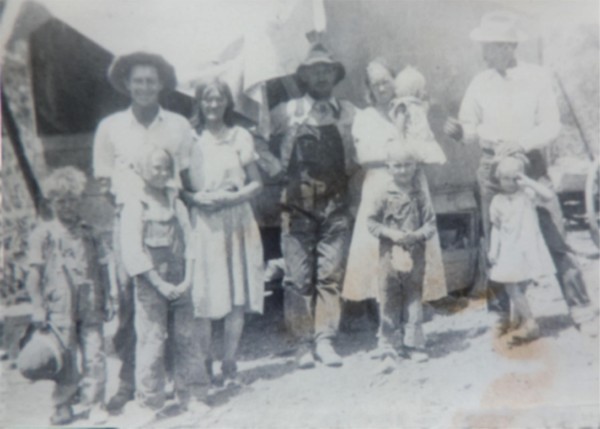
L-R Front: Robert “Bob” Muir, Verona “Vee” Muir, John Martin, Cora Mae Martin. Back: Pete Stocks, Verona Stocks, Earl Martin, Neva Martin, Josephine Martin, Jack Pogue.
I had another problem too. There was $300 in the bank account, enough to pay the men for shearing the sheep, but the only lawyer in town said I could not touch the money because I had two young children. The lawyer paid himself my $300 and got that much from the welfare for me to pay what expenses I could. April 30, 1930 the depression really hit us. The company we had consigned our wool to did not want it because they could barely meet the freight charge.My two youngest sisters, Felicia and Josephine, stayed with me all summer. Josephine did not like to live in a tent and she did use more water to keep cool and clean. Water was a problem for me as I only had two five gallon water kegs and two water bags to take care of the camp water supply. I put the kegs on the pack horse and hung the water bags on my saddle horn.
One morning I brought the water to the sheep camp and when I came in that evening there was no water left. Josephine gave both kids a bath and took one herself and kept the tent floor damp all afternoon. I was upset because it was at least two miles to a good spring. It had been so hot all day and I was tired and hungry. It was almost sundown and I had to hurry to get that water.
I could not lift a keg of water. I had to carry the water from the spring in a bucket, then pour it into the keg. By the time the kegs were full it was dark. It did take time but the pack horse was patient. We used the water carefully after that and I did take the kids to the creek almost every day so they could play in the water.We moved the camp to the north side of Looking Glass. A spring was about 1/2 mile from camp but I still had to take the sheep to Goodman Canyon because the spring was too small to water about 900 head of sheep. I left at daybreak one morning and let the sheep graze toward Goodman. I usually let them spend two or three hours around the water. This day I did not. I hurried them back toward camp. When I got out of the canyon, I looked to the south. All along the ridge there was nothing to see but cattle. No cowboys in sight. The cattle was grazing, but me and those sheep were sure in a hurry to get out of their way. We had not gone far when the sheep began going around something up ahead. When I got closer I saw it was my 19 month old son coming to look for me. A cowboy arrived and slowed the cows down so we got safely to camp. I was sure wishing I had taken time to catch up a horse that morning. There was over a thousand head of cattle in that herd. Indian Creek Cattle Co. was driving to Thompson to ship.
While we were camped at Looking Glass, Bobby came up behind a horse that was blind in one eye. He had to be close when the horse kicked him. He went into a chappral bush, doubled up, bottom first. His overalls protected him from the thorny leaves. I had a time getting him out. We both got scratched up some, otherwise he was unhurt. School started a week later, and all the kids were taken to Moab. Vee and Bobby had to go too. Mary took care of them.
I spent a month alone. If you are alone when you have a herd of sheep, a horse and the coyotes are willing to sing all night. I thought what would a man do while the sheep were grazing? Of course, build up a pile of rocks, whittle on a stick, have a smoke? Only I was not a man. I explored some canyons, climbed slick rocks, watched birds, walked more than I rode.
Dad came to move the camp to my place on Pack Creek, west of the 4M ranch which belonged to Boyde Hammond then. Jack Pogue and my brother Felix cut out the lambs to be sold. They were put in Boyde’s herd and Jack drove them to Thompson. Our lambs were light. We would have been unable to sell had we not been with Boyde Hammond. When Jack came back I had enough money to pay a little on my bills and the interest on the money Bob had borrowed from John Jackson to buy more sheep.
Jack was working for Boyde on the 4M ranch. Mary was with him and they were taking care of the kids. After I had the sheep on the bed ground I could ride to the ranch to see them. The sheep camp was moved toward Blue Hill. The snow came early; it was deep on the north hillsides. The sheep just had to explore them because they knew I had no overshoes, I guess. I tried wrapping sacks around my oxfords; maybe it helped, but my feet were cold all the time. Mary sent for felt boots that fit inside rubber shoes. Before I got them it snowed again. Those sheep just had to see what was going on in Mud Spring Hole. Of course, if I had been watching instead of trying to warm my feet by a nice fire, I could have stopped them.
Camp was in a little cove east of Blue Hill. I started the sheep up the trail on the south side of Mud Springs. It was a steep hill for about 200 feet. When I got to the top, I found a young ewe caught in a trap. I got hold of her to take her foot out of the trap. That was the fastest ride I ever took to the bottom of a very bumpy brushy trail. Matter of fact, she went down the trail, I took a short cut. The trap chain was wrapped around my leg. I sailed over brush and rocks. It was lucky for me the snow cushioned them some. I felt them all right. My overalls were not new, but by the time I reached the bottom of that hill there was not much seat left in them.
My felt boots came. The days were warmer, but the nights were cold. Every morning some of the sheep would need help. Their wool was frozen down. I was busy herding sheep, cutting wool, cooking at night and I was able to read a little when I was not too tired. Some of the sheep belonged to Aunt Mame so some of my uncles decided they should herd the sheep for awhile.
I spent Christmas with Mary and Jack and got acquainted with my two children. That is when Mary discovered I had blood poison in my hand. She cured that. I wondered sometimes if the cure was going to do as much damage as the blood poison. She put epsom salt in hot water and made me hold my hand in it several times a day. My hand was not blistered as I was sure it would be. When Mary was sure I was alright she went back to the Pack Creek Ranch where Jack worked, and I stayed in the house they were renting across from the Murphy ranch. My arm bothered me for quite awhile but when it was better I moved to Dad’s place.
That winter of 1930 and 1931 was bad for us all. Aunt Mame’s operation was not a success. The cancer was spreading all over her left side in open sores. Dad was sick a lot that winter and yes, I was really needed there on the Murphy ranch. I took care of Dad, his young children, and Aunt Mame. She was living with grandma across the street from Dad’s place. Uncle Felix did the cooking and the cleaning at Grandma’s.
Uncle Felix decided to make a trailer house for me so the kids and I would not have to live in a tent at the sheep camp. He had an old car chassis and I bought the canvas, screen, linoleum, plywood, and other material he needed and did not have. I had a screen across the back and a screen door. The thing I disliked most about the old days was the flies. After living in a 8 x 10 tent most of the last 4 1/2 years that sheep camp wagon was a mansion.
1931–The people in southeast Utah were really feeling the depression. The stockmen were having troubles. We had a hard time finding a buyer for our wool. Uncle Felix, Jack Pogue and Tom did the shearing. Tom had taken over Aunt Mame’s sheep but I did pay the others a little as neither Uncle Felix or Jack Pogue would not take a full payment. I paid Annie for the cooking, bought the food, and paid her husband, Tom Hudson for herding the sheep while the shearing was in progress. Tom Murphy did not offer to help out with any of that. Buck (Carl) Murphy, Grandma’s adopted son helped around the shearing pens and with the sheared sheep.
Jack, Otho, and Buck stayed with the sheep until most of the lambing was done, then, because Otho’s rheumatism was giving him such a bad time, they had to take him home. Jack had to go back to his job; Buck was just a kid. I had paid him a little but thought he could earn more elsewhere. I went back to the sheep camp leaving Otho and Uncle Felix to take care of Aunt Mame and Grandma. My kids stayed with Dad until school was out, then they came to the sheep camp in the new camp trailer. Felicia and Jo (Josephine) came to take care of them.
I never got along with Tom Murphy and I did not want him as a partner. He did pay Aunt Mame’s doctor bills, paid the doctor, and he got her things she needed but he never could see why a woman should have any money when he sold her steers. She wanted him to kill a beef. He wouldn’t, but when Dad killed a beef which belonged to him and Mother, Tom was right there for some of the meat.
Dad and Tom owned about 75 head of cows so Dad traded his interest in the 7M cows for Aunt Mame’s sheep. Aunt Mame went along with the trade because she knew she did not have long to live and she knew Tom would be an extra burden for me. Dad needed my help.
Dad wanted to move his family away from Moab and off the Murphy ranch, so he traded some of his cows for a down payment on the Herb Day place in La Sal. Then the move started and it did not take long. The kids were very enthusiastic.
Dad had a good wagon and a team of mules and 20 head of cattle that had been Mother’s from her milk cows. Dad and Nick moved the household goods and farm equipment. Felix drove the cows. It took him two days and he camped out one night. When he got back, of course, he had to help Dad and Nick some. From the time Dad left the Murphy ranch, Felix was the sheep camp mover and often the sheep herder.
I owned a car, wagon, and the camp wagon, which we lived in now. The camp wagon had a trailer hitch so we could pull it behind the wagon. I had a good gentle team but when we were moving, no saddle horse. I did not mind walking.
When the move to the ranch was finished, Felix took my car and Dad’s two youngest children, Josephine and Ray, to the ranch. Jo was 11 years old and she did the cooking and kept the house clean, and did the washing on a wash board. Washing machines were for the future. Felicia stayed with me and took care of my kids. Felix and Nick got the corn and potatoes planted and Dad put in a big garden.
Aunt (Mame) Mary Murphy Duncan died June 28, 1931, age 56. We all felt bad about that. She was such a special person. That was the only time Dad went to Moab that summer.
When Felix was in the sheep camp he killed cottontail rabbits for supper every night. He seldom missed a shot. We kept moving closer to the ranch at La Sal, finally coming close enough so Felix and Nick could herd the sheep day times while I helped Jo at the house, and I did need to do some sewing and patching for the family.
We all worked hard for so long and no one at La Sal was doing anything for July 4th. We decided to invite a few people to our place for dancing and music. Uncle Felix would not be there, but Jack Stocks was very good on the violin. I had heard him play with Uncle Felix. Dad and the kids invited the people they knew so I got acquainted with our neighbors.
Earl and Neva left Moab and moved in with Dad. They had two children. Earl’s sister came to visit him and stayed. She had 4 kids. I was alone at the sheep camp so Dad had Vee and Bob. Seventeen people living in a five room house. Eight children under six years old. That summer we had used all the money Bob and I had saved in Vee’s and Bobby’s piggy banks. About $25. We were feeding too many people, so Dad talked to Leland Redd and got some child support for me. $10 for Vee and $5 for Bob. That was for one month. I bought school clothes with it. But $15 a month – at least it helped.
Boyde Hammond took our lambs to Thompson again and Dad was gone from the ranch for a week, leaving the kids with Neva. We did not get much for our lambs but paid John Jackson interest on the loan and some on the store bill.
NEXT TIME…Verona meets Pete Stocks
*Photo Captions Courtesy of Lynda Stocks.
Click Here to Read Parts 1-5 from Verona Stocks.
To read the PDF version of this article, click here and here.
To comment, scroll to the bottom of the page.
Don’t forget the Zephyr ads! All links are hot!

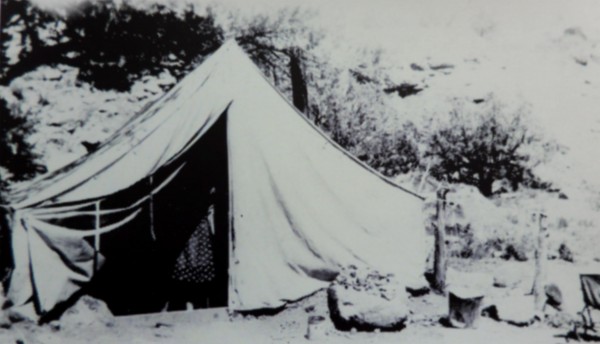
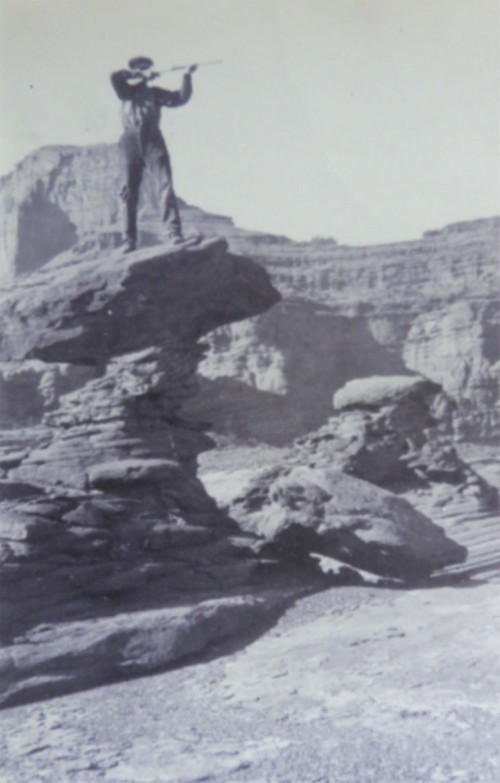
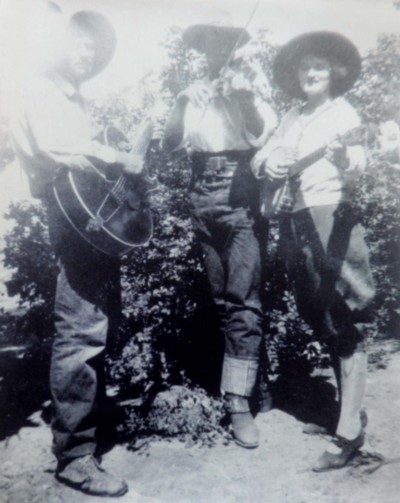
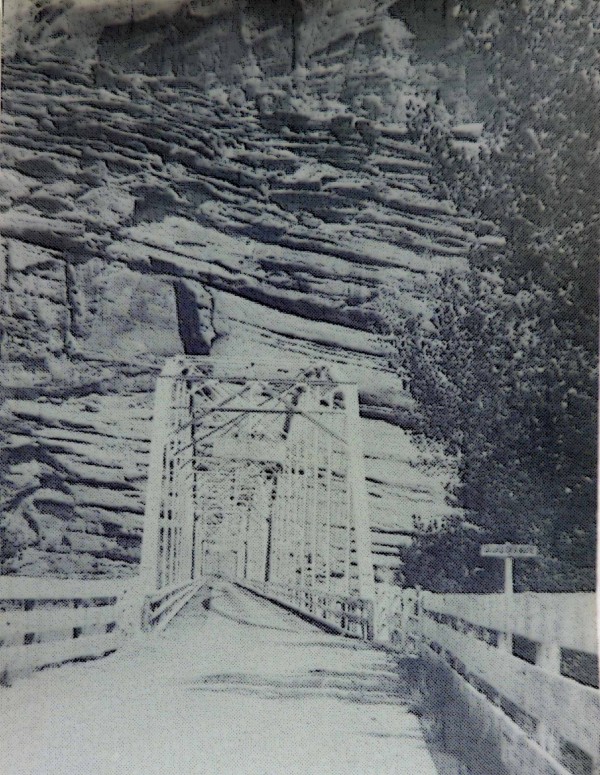
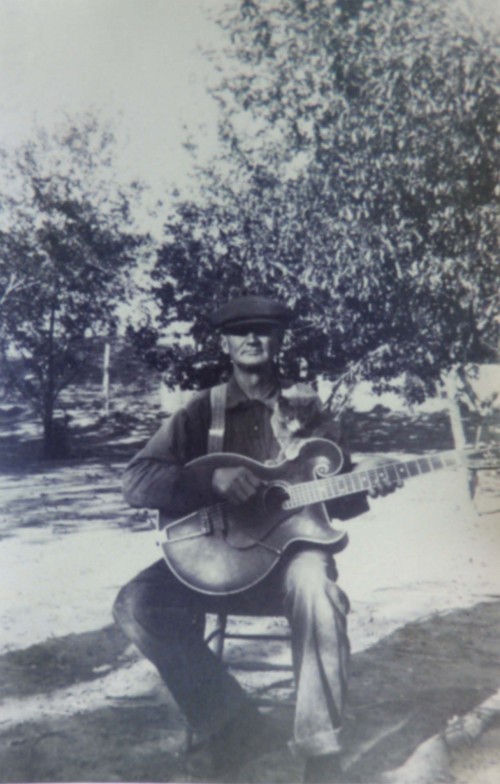
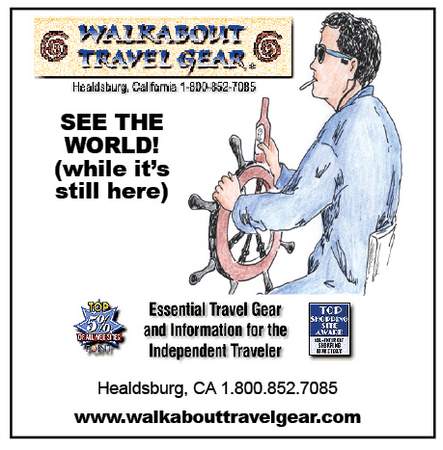
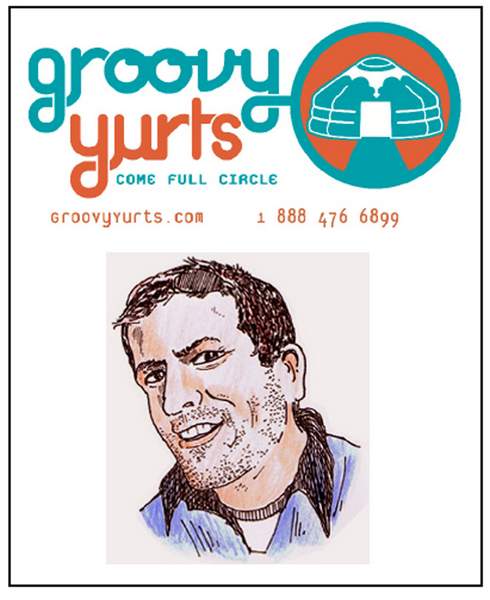
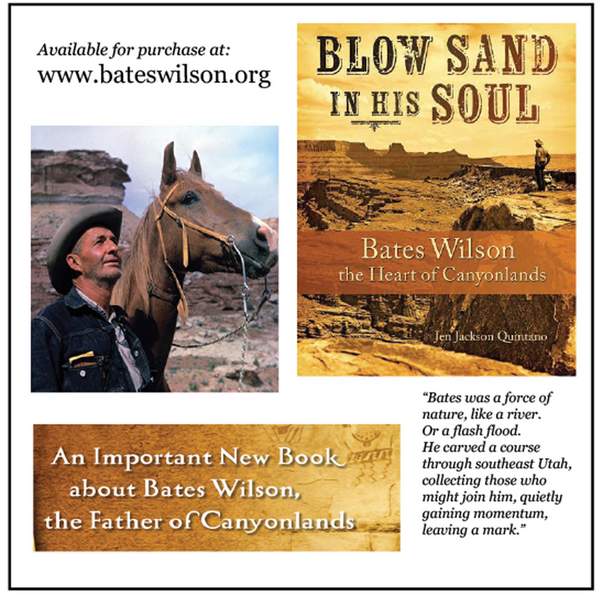
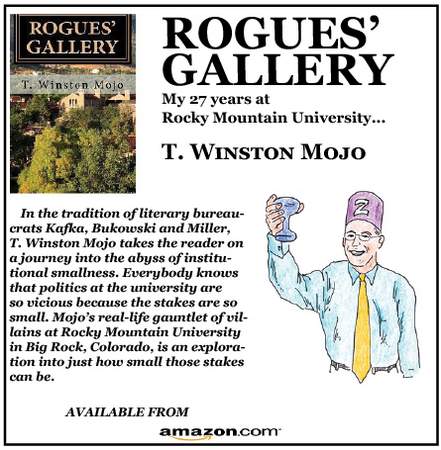
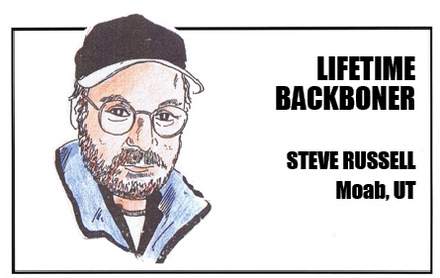
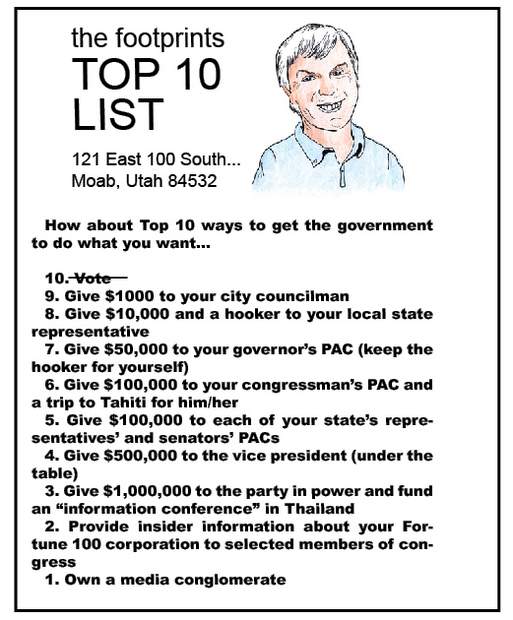
Thank you so much for sharing this amazing story that is your life.
From the Humbert’s that use to live in Glade Park, Colorado and moved back to the Basque country in France.